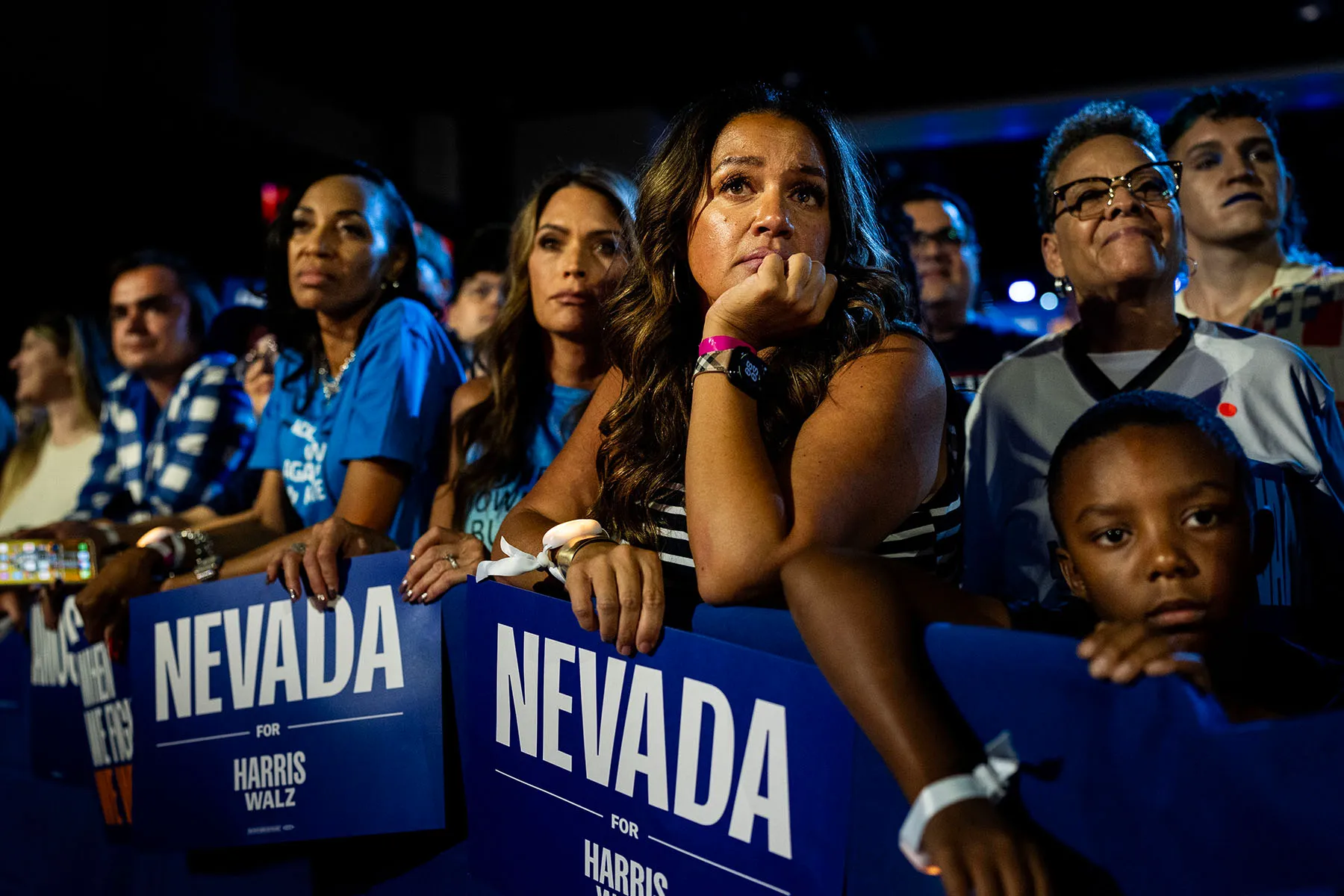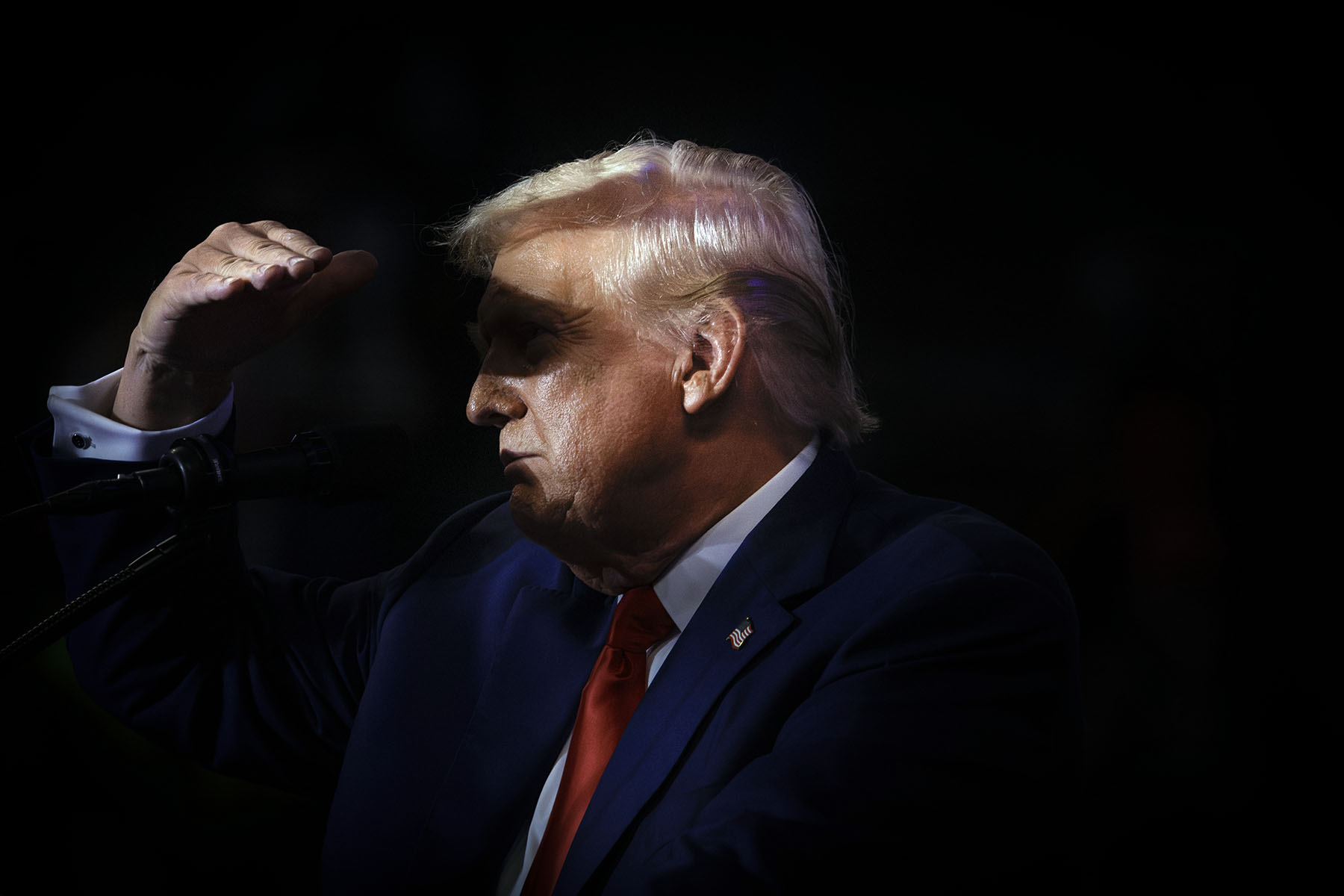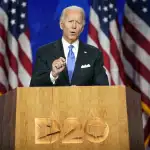This column first appeared in The Amendment, a biweekly newsletter by Errin Haines, The 19th’s editor-at-large. Subscribe today to get early access to future Election 2024 analysis.
Twelve weeks to the day that Donald Trump turned his head at exactly the right moment during a campaign rally in Butler, Pennsylvania, dodging a bullet from a would-be assassin’s bullet, he returned to those same fairgrounds on Saturday. The former president was looking to galvanize his voters as he did when he stood to his feet moments after the attempt on his life, raised his fist and told them: “Fight! Fight! Fight!”
It was a moment that cemented his folk hero status to supporters in the crowd and around the country, just days before he would accept the Republican nomination for president at the party’s convention in Milwaukee. As the convention opened, a federal judge dismissed the classified documents case against Trump, one of the four criminal cases that had been looming over him and his campaign for much of the year.
That week, Trump’s return to the White House felt inevitable. His then-rival, President Joe Biden, faced calls from his party to drop out after a presidential debate that Trump did not so much win but that Biden lost. The momentum felt decidedly on Republicans’ side.
That was then.
Saturday was markedly different from July 13. Most notably, there was no attempt on Trump’s life. And while next month’s election is still likely to be close, gone, too, was his air of inevitability.
Trump has a new opponent, Vice President Kamala Harris, whose campaign began July 21 after Biden exited the race and endorsed her as his successor. Harris’ candidacy — launched two days after the Republican National Convention ended — immediately shifted the momentum in Democrats’ favor. There was unleashed enthusiasm at her rallies and online that has translated into record fundraising, and a surge in volunteers and new voter registrations.
It wasn’t just Democratic voters beginning to line up behind Harris. At the Democrats’ convention in Chicago in August, Trump’s former rival, Hillary Clinton, rallied her party to defeat him and thrust the next woman in line for the presidency into history.
Two days before Trump’s revisit to Butler, Wyoming Republican Liz Cheney — whose role as co-chair of the January 6 congressional hearings cost her House seat, who had entertained challenging Trump during the Republican Party and had not made an endorsement before backing Harris earlier this summer — appeared alongside the vice president on the campaign trail in Ripon, Wisconsin, birthplace of the Republican Party.
The endorsement and involvement of these women who have challenged Trump from different directions, but both point to him as a scourge on democracy, underscore the historic nature of the moment beyond gender.

With Biden out of the race, Trump is now the oldest candidate for president, and faces questions about his mental capacity. Harris, who repeatedly baited Trump and kept him on defense during their presidential debate in Philadelphia, emerged the night’s clear winner. Once regarded as a branding master, Trump’s repeated and increasing racist and gendered attacks against Harris have not landed, and he has struggled to define her. Suddenly, his tactics felt stale, his nicknames, conspiracy theories and culture wars playbook not working against a candidate unwilling to engage with his style of identity politics.
Harris is not the same candidate she was four years ago, but neither is Trump, who is older, his behavior more erratic, his speech more rambling. He is now convicted in a New York court of concealing hush money paid to a pornography actor to keep their affair a secret ahead of the 2016 election. He also faces additional charges for interference in the 2020 election. The 2024 race is no longer a status quo contest between two White men in their seventies and eighties, respectively; the contrast between Harris and Trump could not be more stark.
Still, in our deeply divided partisan politics, the difference of a few months has redefined the contours of the election, but has not been enough to dramatically reset the race with voters. And after an era of unprecedented events, it is not clear what an “October surprise” would look like — or if it will matter should one arise.
For most of 2024, Biden trailed Trump in the polls, and his numbers worsened after the June debate, but Harris has narrowly pulled ahead of the former president in recent polling. What will happen over the next few weeks and on Election Night is unclear. But Trump, who had no real opposition during the Republican primary, now faces a formidable rival headed into November. On July 13, fate intervened and Trump dodged a literal bullet. On November 5, voters will decide whether he will dodge a political one.





